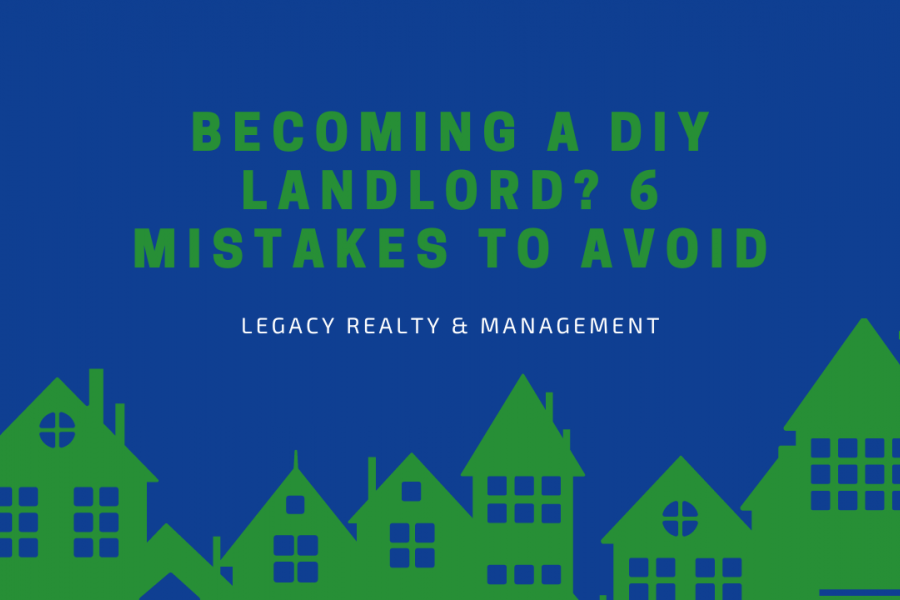
While being a DIY landlord is a great step towards achieving financial independence, it has its own set of challenges. Knowing the common mistakes new landlords make will help you avoid costly errors and property vacancies .
If you are paying a monthly mortgage, avoiding mistakes is crucial to keeping your rental income steady. As a self-managing landlord, you may face challenges while you develop strong property management skills.
Common DIY Landlord Mistakes
Here's a list of common errors DIY landlords make and how to avoid them:
1. Skipping Property Inspections
It is true that DIY landlords can juggle a lot of tasks and while it is tempting to postpone property inspections, it can lead to overlooking signs of property damage. Always stay consistent in inspecting your rental unit.
You never know what may turn up. There may be unreported issues of mold or pest infestation which can lead to severe damage of your rental space and expensive remediation. It is best to address problems swifty so the residents remain comfortable while staying in your unit.
2. Failing to Research Your Target Market
As a DIY landlord, you may want to attract everyone as a potential tenant. However, this can backfire as your rental can become too generic. You need to analyze and research the demographic that best fits your rental property.

You must also determine an accurate rental rate instead of copying from your competitors. Check property listing sites and identify those that are similar to yours. If you are upgrading your rental , you can adjust the rates higher but make sure that this is within the range that your target renters can still afford.
If prices increase from inflation, higher insurance premiums, and taxes, don’t hesitate to adjust the rental fee upwards in accordance with local laws and regulations.
3. Dismissing a Written Lease Agreement
It may take effort to craft a lease and landlords may opt for a verbal agreement. However, this can offer less protection for you. With terms and conditions in black and white, there is little chance for confusion and denial of mutual agreement, especially since the renter signs the contract.
If a renter files a lawsuit, it can also be a challenge to defend your side without a lease agreement to show. In addition, residents are guided on the property policies, acceptable rental payment methods, and expected responsibilities when you provide a lease copy.
4. Delaying Evictions
Some DIY landlords can build a close relationship with their renters and end up making emotional decisions. They may continue to excuse delinquent tenants who fail to pay on time and break property policies.

Hiring a property management company can be a wise move. The company can act as a professional representative and can proceed with an eviction. Remember that you are running a business and if you are not firm with your policies and payment due dates, you can end up with losses and lower ROI.
5. Lacking Preparation For Vacancies
It is advisable to set aside a budget for future property vacancies. As a DIY landlord, marketing your unit can take time. You want to avoid accepting residents who fail to meet your criteria just because you need an income to cover a monthly mortgage payment. An empty unit can still have maintenance costs.
A 3-month savings fund can tide you for a few months while running a tenant screening procedure and qualifying potential renters. You can evaluate the renter fully and review their tenant history in detail. Creating an effective marketing campaign can attract a huge tenant selection.
6. Failing to calculate the time dedicated to self-managing a rental
From the outside, you may think that being a DIY landlord is a walk in the park. You only need to collect the rent each month. But this could not be farther from the truth. You are expected to perform your landlord duties in maintaining the property well.

You must perform regular property inspections, resolve tenant issues, and attend to property maintenance requests. You are also expected to deliver quiet enjoyment to renters, such that disturbances are kept to a minimum. You must also be available to deal with property emergencies.
In sum, landlords can end up losing their personal time. That’s why it is worth considering property manager’s services if you want to free up your time to chase after opportunities to grow your property portfolio.
While you save on management fees as a DIY landlord, you must calculate the time costs as well. It is best to invest in property management to access better systems, more resources, and local expertise .
Bottom Line
Successfully managing a rental property as a DIY landlord involves avoiding common mistakes. For better protection and support, contact Legacy Realty & Management today! Their expertise can help you navigate the challenges of property management, ensuring your rental business thrives while you enjoy peace of mind.
